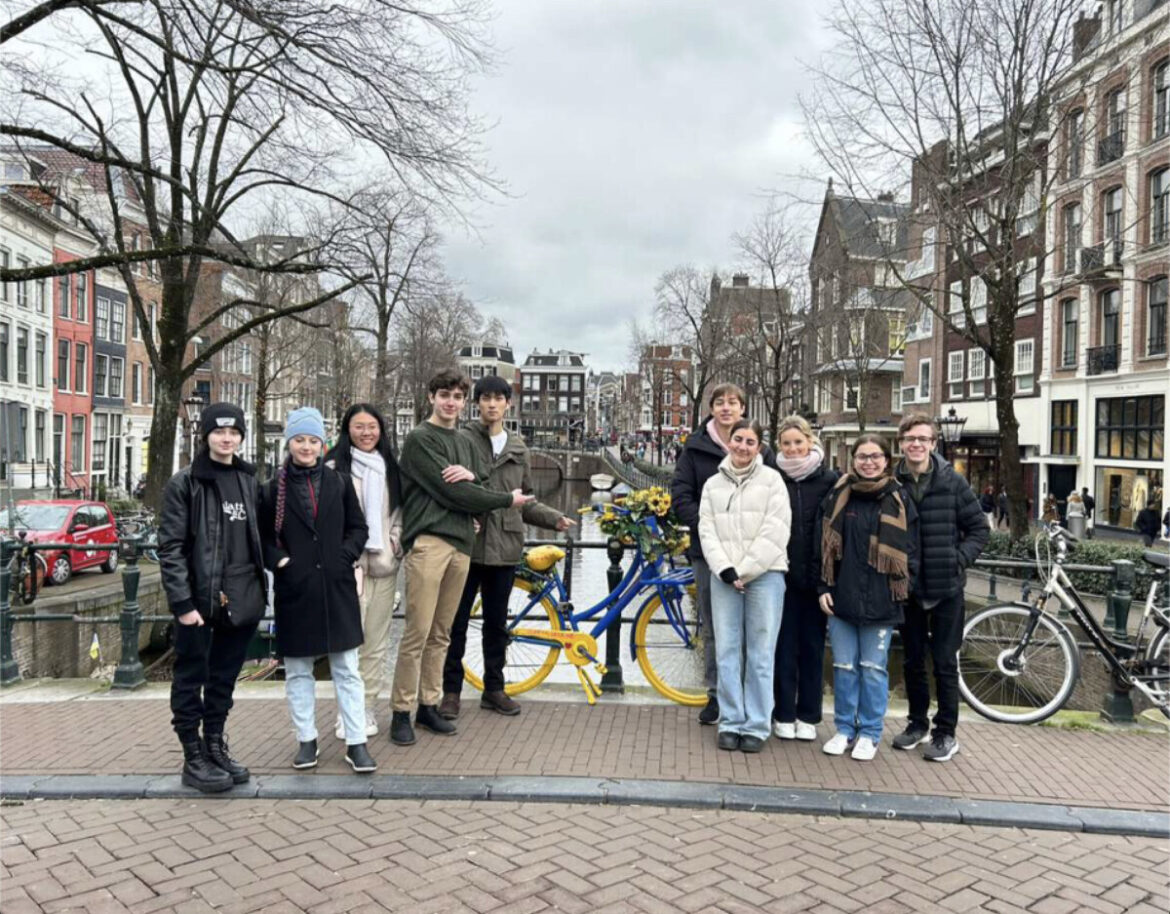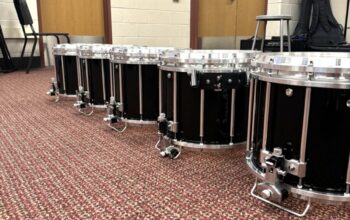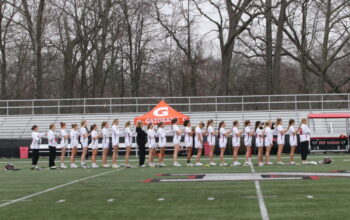Avery Cotton, News Editor
@averyccourant
The Netherlands: land of windmills, canals, tulips, and since 1968, international Model United Nations (UN) conferences. On January 21st, ten Model UN club members and two club advisors traveled to the Hague, the Dutch administrative capital, for their first in-person conference since 2020.
For the last fifty-five years, hundreds of students from around the world have gathered annually at the THIMUN Conference in the Hague to simulate and discuss real-world issues. Despite the prestige of the conference, the school doesn’t limit who’s able to attend. “At the start of the year, we wrote a letter applying to go on the trip, and that was pretty much the only thing determining who could go,” junior Kevin Zuo said. “However, the club usually only accepts upperclassmen with some exceptions.”
The location of the conference contains a distinct connection to the United Nations that makes the event even more unique. “The Hague is the location of the UN General Assembly, which provides a direct link to the United Nations,” Kevin said. “Even if one wants to be involved in government and politics but not specifically the UN, practicing skills such as compromise, debate, and voicing opinions can be useful in college and adulthood.”
In the face of such an important conference, participants underwent preparation long before it began. “In November, we started researching and getting ready for THIMUN,” Kevin said. “Two months before the conference, we were assigned our country, Iceland, and a month later we were assigned our committees. The prep consisted of writing and reading articles, and we also wrote a sample resolution.”
History teacher and Model UN advisor Paul Phillips played a key role in organizing the event and assembling an itinerary among other things. “This is the ninth year that we’ve done the conference, and I used to live in the Netherlands which helps me guide the students around the country,” Mr. Phillips said. “My role has traditionally been associated with trip logistics: getting our school registered and invited to the conference, booking the flights and hotels, facilitating payments, and putting together an itinerary.”

Though the conference is designed to simulate issues and bring together different people of different backgrounds, the conference is unique in its sheer diversity and the number of students that it convenes. “In my room alone, there were 187 delegates from Kazakhstan to Argentina representing over a hundred countries,” Kevin said. “The delegates mostly represented other countries as well as third-party organizations like the UN High Commissioner for Refugees that play a role in international affairs.”
Junior Zoe L’Henaff found the conference to differ greatly from conferences she had attended in the past. “The set-up was interesting to me because it was very different from what I was used to,” Zoe said. “We spent the first day lobbying, which consisted of going through different topics and writing resolution papers with a certain bloc. It was really great from a social perspective because I became friends with a lot of people while getting work done and creating resolutions.”
The topics discussed in Zoe’s Sustainable Development room were critical because of their relevance in today’s world. “My room was focused on developmental conflicts in the world right now,” Zoe said. “Some of our topics included food supply in times of war and environmental elements like deforestation, which tended to revolve around people.”
Among the things that stood out from the conference was getting to socialize with people from a diverse range of backgrounds. “My favorite part was getting to meet new people with different experiences, as a lot of these kids went to international schools,” Zoe said. “A lot of them spoke 3-4 languages, and they were super friendly — some of them even invited me to stay at their houses in Brazil and Morocco. What struck me was how articulate and diplomatic these people were and how they found a way to make the room feel very light and fun while also getting work done.”
Junior Daniel Ristic also enjoyed the conference, despite coming across some challenges in his assigned room. “My room was the Special Conference on the Future of Borders, which was difficult for me to participate in because Iceland is an island,” Daniel said. “Not all of the questions were entirely on physical borders — there were some on preserving cultural and language traditions. Iceland is a country full of rich cultural heritage and traditions, and I took great pride in that and tried to communicate that point.”
Like the other attendees, Daniel was pleasantly surprised by the diverse range of perspectives and backgrounds of students at the conference. “I went there and was really used to the American lifestyle, but the majority of the students were from other parts of the world,” Daniel said. “One thing I found interesting was the surprising number of people who were born in the US and went to an international school in another country. In fact, our school is the only American public school that gets to attend the conference.”
Mr. Phillips firmly believes in the value of the conference and the skills that it hones. “You don’t have to work in diplomacy for the conference to be meaningful,” he said. “For any sort of jobs that involve international travel, or dealing with other cultures, these skills come in handy, as they open your eyes to see all that the world has to offer and loosen our American-centric views. Also, the conference doesn’t have awards, and people are there to collaborate rather than compete, which is very important in the professional world.”
Aside from the conference itself, the team spent several days sightseeing and exploring the range of attractions that the Netherlands has to offer. “The conference normally goes for four-and-a-half days, but this year it went for four days, giving us extra time that we normally wouldn’t have,” Mr. Phillips said. “We used that time to go to Amsterdam earlier than anticipated, where we went to the Anne Frank House, something non-negotiable that we always do. We also did a canal cruise and visited the beautiful Rijksmuseum.”




